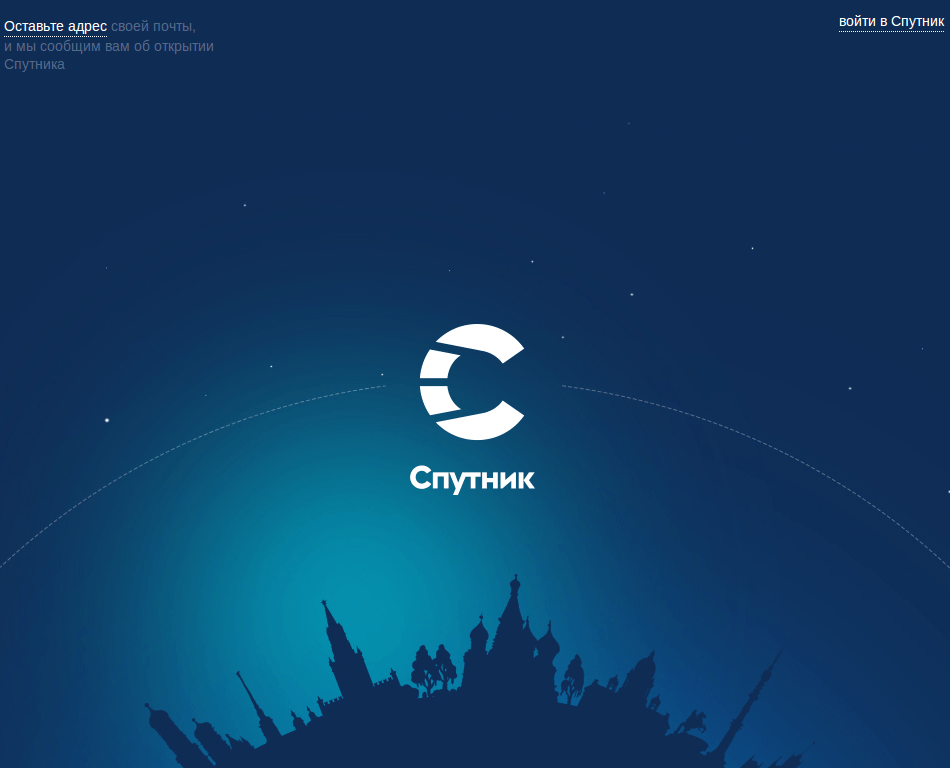Almost 70 years after the cold war-era 'Space Race' between the United States and Russia was kickstarted by the latter's launch of the Sputnik 1 satellite into low Earth orbit, another Sputnik launch will likely start a new chapter in the Russian 'Search Race'.
Tomorrow (22 May), Russian government-owned national telecommunications operator Rostelecom will debut a new search engine dubbed Sputnik.ru, report various local business media.
The beta version of the new state-run search engine will go live on the first day of the St. Petersburg International Economic Forum, nicknamed the 'Russian Davos', according to the reports.
Update: the search portal is now live at Sputnik.ru, but only for Russian IP addresses.
Sputnik (which means 'satellite' in Russian) will be positioned as a major competitor to Yandex, one the leading technology companies in Russia, and American Internet search and advertising giant Google. Yandex has a roughly 62% search market share in Russia, followed by Google Russia with 27.6% and Mail.Ru with 7.7%, according to LiveInternet stats.
The Sputnik project is spearheaded by Alexey Basov, a Vice President at Rostelekom with previous experience as an executive at the likes of Mail.Ru, Begun and SpyLOG under his belt.
He was expected to heavily headhunt talent from Yandex and Google Russia, but Yandex spokesman Vladimir Isaev tells tech.eu that he is not aware of any significant 'steals' by Rostelekom at either company. Isaev also said it's still a mystery to almost anyone in the business as to what Sputnik will look like and what it will amount to. In other words, for now it's 'wait and see' over at Yandex.
Yet some expect Sputnik to rapidly gain market share after its beta launch this week, in part because Rostelecom plans to make it the default service within state companies and government departments according to a recent The Moscow Times report. Others say Sputnik will serve more as some sort of vertical search engine for government-controlled corporations and state departments only, which would lessen its appeal to the average Russian Internet user. And others say it has no chance.
More when the service is officially unveiled, it's safe to assume.
The estimated investment that was poured into the development of Sputnik lies somewhere between $20 million and $42 million, which is paltry compared to the research and development investments made by Yandex, let alone Google, to date when it comes to fine-tuning its search services.
The idea for a state-controlled search engine was first pitched in 2008 by then-Russian President Dmitry Medvedev, who disapproved of the online coverage of the Russian-Georgian war that he saw.
Apparently, developing a solid search engine takes a lot of time and effort (who knew right?).
In more recent times, Russian politicians have repeatedly called for Yandex, whose business is registered in the Netherlands and stock is traded on the NASDAQ exchange, to be reclassified as ‘mass media’ (and face all the Russia-specific restrictions that nomenclature entails).
Earlier this month, Yandex nominated state-run Sberbank CEO German Gref as its new non-executive board member, which was either a political or a business move - or both.
(Hat tip to Yakov Sadchikov )




Would you like to write the first comment?
Login to post comments